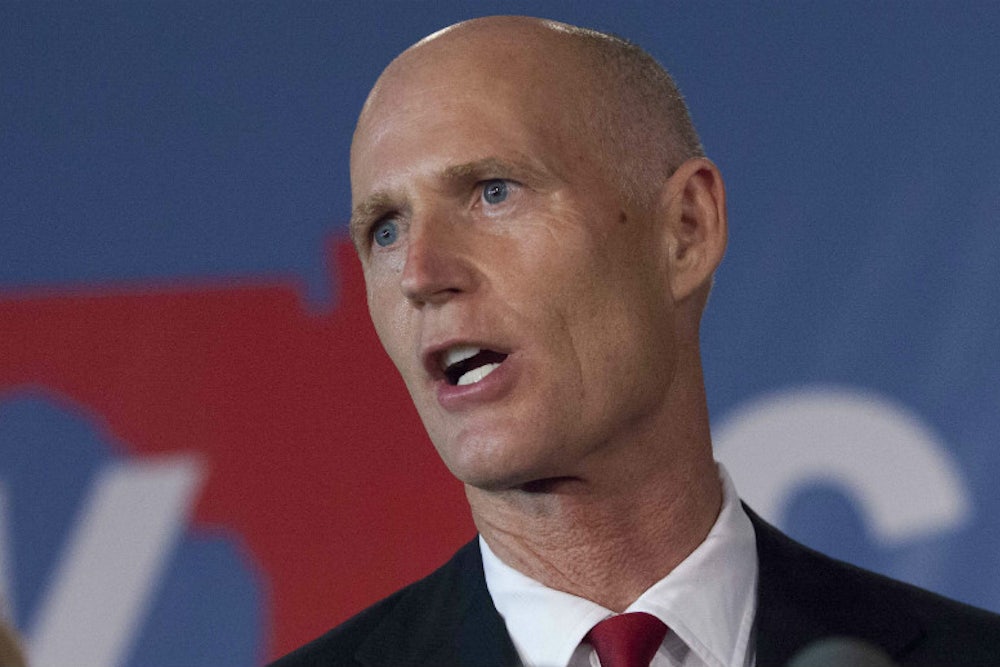The Wall Street Journal, the largest-circulation daily newspaper in the country, ran a front-page article on Wednesday pointing out that the Affordable Care Act was falling short in one very specific, politically relevant way. As the headline blared, “Latinos Lag Under Health Law.” One quarter of Hispanics in the U.S., the article went on to report, still lack health insurance, “the highest rate for any racial or ethnic group.” “During the first year’s sign-up period, just 2.6 million of an estimated 10.2 million uninsured Hispanics eligible for coverage enrolled in health plans, according to an October report by the Department of Health and Human Services. The Latino uninsured rate among those ages 18 to 64 declined 18%, but that was a smaller percentage decrease than for other groups.”
The political undertones of the piece were hard to miss. Here are the Obama administration and the Democrats, who profess to be the party that better represents the burgeoning Hispanic electorate, yet they're failing to deliver the benefits of their big legislative accomplishment to this key constituency.
The article lays out several possible reasons for this failure: “The Spanish version of the federal health-insurance website, CuidadoDeSalud.gov, didn’t launch until December, and various glitches made it difficult to use.” “A shortage of Spanish-speaking enrollment aides, known as navigators, resulted in hours-long waits.” “Uninsured Hispanics, who often knew little about copays, deductibles and provider networks, required more education than many advocates anticipated.” “Many Latinos legally qualified to secure coverage worried that applying would jeopardize family members who were in the country illegally, despite administration assurances that it wouldn’t.”
All these factors are surely contributing. Oddly, though, the article did not mention another factor that just might be playing a role in the low rates of coverage expansion for Latinos. Many uninsured Latinos are low-income, which means they fall in the group of Americans who are supposed to be covered by the expansion of Medicaid, which is for people up to 138 percent of the poverty level, rather than by subsidized private insurance, which is how the law is covering people above that income level. And many Latinos live in states, such as Florida and Texas, which are refusing to accept the expansion of Medicaid, even though it will be paid for almost entirely by the federal government.
In Florida, there are an estimated 800,000 uninsured people who would be covered by the Medicaid expansion; in Texas, there are roughly one million. Given the demographics of these states, a large swath of these people are of Hispanic descent. The Kaiser Family Foundation estimates that six in 10 uninsured Hispanics nationwide would qualify for the Medicaid expansion. "The Medicaid expansion will disproportionately impact Hispanics," it wrote in a major 2013 report. The National Council of La Raza, the nation’s largest advocacy group for Latino immigrants, estimates that in Texas, nearly 600,000 of the state’s Latinos who would have benefited from Medicaid expansion are going without coverage, citing statistics from Kaiser and other organizations.
This factor might have been relevant for the Journal to mention. Heck, the article was even reported from Florida, which just had a close gubernatorial election where one of the major issues was whether to accept the Medicaid expansion. The article could just as well have been headlined: “Republican-Led States Leave Hundreds of Thousands of Latinos Uncovered.” But Journal editors chose otherwise. The article did not contain the word "Medicaid," and it did not contain the word "Republican."
